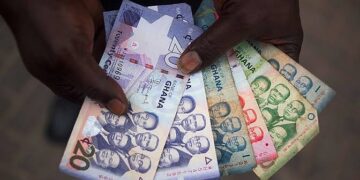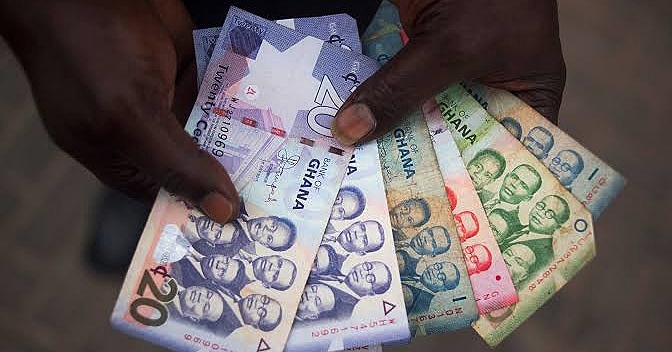Ghana’s currency, the cedi, has emerged as the best-performing currency against the US dollar in the last six months.
This surge in value has been fueled by investor confidence, driven by the anticipation of Ghana obtaining a $3 billion bailout from the International Monetary Fund (IMF).
In the past six months, the cedi has outshined approximately 150 global currencies tracked by Bloomberg, boasting an impressive 33% gain since November.
Ghana’s dollar bonds have also showcased a remarkable performance, yielding a return of nearly 12%, surpassing the average of 3.6% for emerging and frontier markets in a Bloomberg index.
The prospects of Ghana receiving the first tranche of $600 million from the IMF following the board’s meeting on Wednesday have further fueled positive sentiments.
Mohammed Amin Adam, the Minister of State for Finance, has expressed optimism regarding the immediate disbursement, with subsequent instalments expected in November and every six months thereafter, contingent upon IMF reviews.
This positive outlook has propelled the cedi’s strengthening trend for the fourth consecutive day, with the exchange rate reaching 10.95 per dollar as of 9:57 a.m. in Accra.
Daniel Kavishe, an Africa economist at Rand Merchant Bank, foresees further appreciation of the cedi if the initial tranche is received and market sentiment remains favorable.
Kavishe suggests that the currency could potentially trade below 10 against the dollar in the near future, drawing comparisons to other markets that experienced similar reactions when receiving an IMF program with immediate fund disbursement.
While an IMF spokesperson confirmed the board meeting scheduled for Wednesday, details regarding the exact amounts to be received are yet to be disclosed.
The IMF funds will play a vital role in replenishing Ghana’s foreign exchange reserves, which have experienced a decline of nearly 50% since reaching their peak in August 2021.
These reserves were utilized by the central bank to alleviate pressure on the cedi following a debt default experienced by the country.
Ghana’s utilization of the Group of 20’s Common Framework to restructure its debt is an integral part of its efforts to secure the IMF program.
This framework aims to enhance coordination between traditional sovereign creditors, including the Paris Club, and newer lenders such as China, which has emerged as a significant financier for emerging economies.
Notably, other nations like Zambia and Ethiopia are also employing the framework in their debt restructuring endeavors.



































